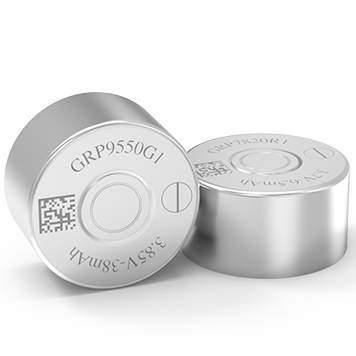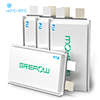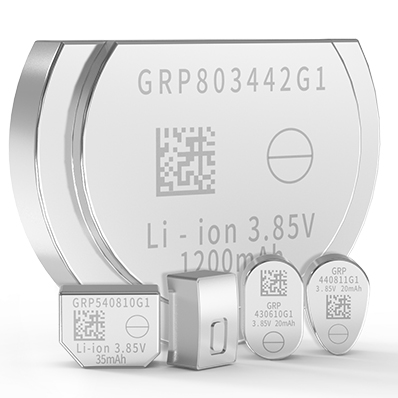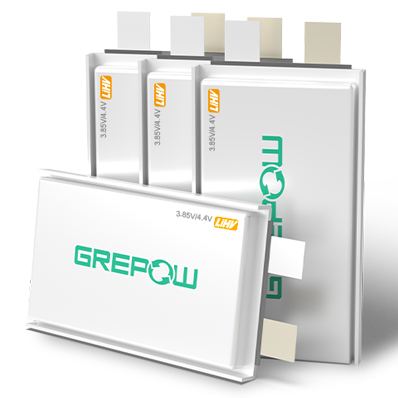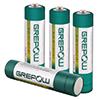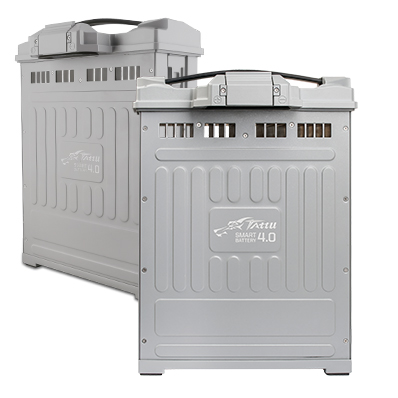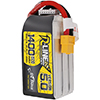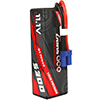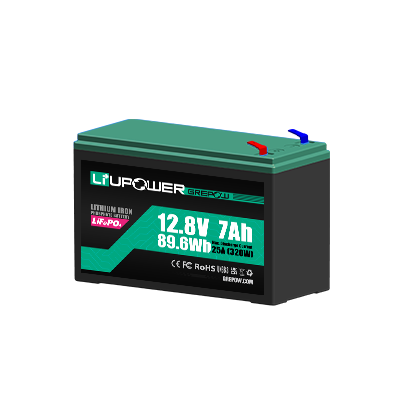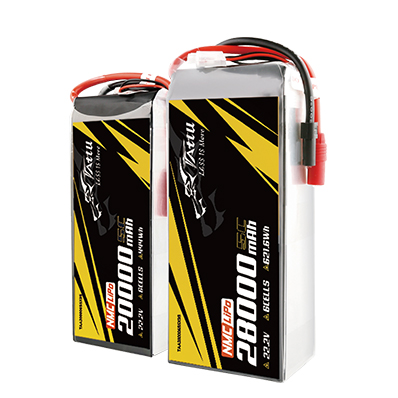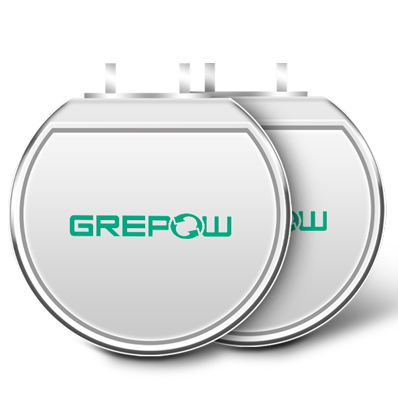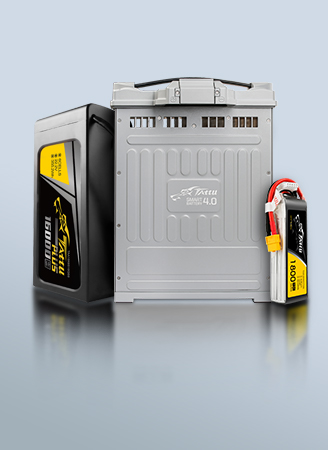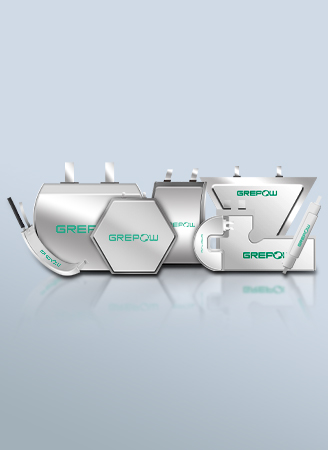Lithium vs Alkaline Batteries – Which is better?
The world is experiencing a phenomenal explosion in the number of products being innovated and manufactured with the aim of improving the experience, quality, and comfort of life. Products like wearable devices, remote-controlled devices, power sports machinery, power tools, energy storage systems, jump starters, unmanned aerial vehicles (UAV), Internet of Things (IoT) and smart home devices, and the medical equipment requiring power, among others, require reliable power so that they can deliver the expected experiences and improve the quality of life. As you consider purchasing any of these products, find out the best battery solution that will guarantee you the experience, quality, and comfort that you desire to derive from the product. Lithium vs Alkaline Batteries: What's the difference between them? How to choose the best one? This blog will give you the answer.
Lithium vs Alkaline Batteries – Which is better?
1. Lithium vs Alkaline Batteries: Lithium and alkaline batteries are made of different materials
Chemistry, performance, cost, and safety are the key factors that differentiate lithium and alkaline batteries. The material that is used to develop the batteries and the approach that is used to fabricate them also serves as a key distinguishing characteristic. Alkaline batteries have design chemistry that relies on zinc (Zn) and manganese dioxide (MnO2) as the cathode and anode, respectively, and an alkaline, rather than acidic, electrolyte; potassium hydroxide (KOH). They derive their energy from the reaction between Zn and MnO2.
Lithium batteries, on the other hand, have design chemistry that relies on metallic lithium. The batteries may have different types of cathodes and electrolytes, but all of them use metallic lithium as the anode. Lithium Cobalt (LiCoO2), Lithium Titanate (Li2TiO3), Lithium Iron Phosphate (LiFePO4), Lithium Manganese Oxide (LiMn2O4), Lithium Nickel Cobalt Aluminium Oxide (LiNixCoyAlzO2), and Lithium Nickel Manganese Cobalt Oxide (LiNixMnyCozO2) are the cell chemistries of some of the existing lithium batteries. Li2TiO3 and LiFePO4 have very impressive rechargeable characteristics. Their recharge efficiencies are about 90%, while their cycle durabilities (100% depth of discharge cycles) are about 10000 to 90% capacity, and about 12000 to 80% capacity, respectively. LiFePO4 batteries, which are also commonly referred to as LFP batteries, are the safest types of lithium batteries that are available on the market at present. The batteries are designed in a way to deliver a presentable small-size product that is light in weight but with a high energy density. Grepow LiFePO4 batteries offer high-powered cell performance that is comparable to many lithium-ion applications. The batteries deliver more power and have a longer life compared to others that you may find on the market.
2. Alkaline vs Lithium Batteries Weight: Lithium batteries are lighter than alkaline batteries
Lithium batteries are much lighter than alkaline batteries. This characteristic offers them the advantage for application in such portable devices as cordless power tools, wearable devices, and cordless medical diagnostic tools, among others. They are also designed to last longer, which makes them find widespread application in high-tech smart devices and electronic devices for which changing the batteries causes inconveniences.
3.Lithium vs Alkaline Batteries Environment: Lithium batteries are environmentally friendly
Whereas alkaline batteries have a higher energy density, last longer than other types of batteries, and have a longer shelf life, they are prone to leakages involving potassium hydroxide. Potassium hydroxide is a caustic agent that can cause respiratory, eye, and skin irritation. Potassium hydroxide leakage from alkaline batteries also puts the gadgets that use the batteries at risk from permanent circuit damage due to potassium carbonate that is formed when the leaked potassium hydroxide absorbs carbon dioxide from the air.

Alkaline batteries are primary batteries, which means that they are disposable, cannot be easily recharged after one use, and are discarded after a complete discharge. They, therefore, have to be replaced once they get completely discharged. This need for replacement creates increased demand for the batteries, which has, in turn, triggered the entry of many actors in manufacture. This has led to the increase in counterfeit alkaline batteries in the market. The counterfeit batteries mislead intentionally consumers by having a similar appearance as the branded alkaline batteries but do not match the performance, efficiencies, and leak-proof features that the branded products have. This enhances the risks relating to the health and safety of people arising from alkaline batteries.
4. Lithium vs Alkaline Batteries Life: Lithium batteries last longer than alkaline batteries
A major advantage of lithium batteries vs. alkaline batteries is that lithium batteries last much longer. Lithium counterparts, on the other hand, are secondary batteries, which means that they can be electrically recharged to their original pre-discharge condition when they discharge. This is achieved through passing a current through their circuit in the opposite direction to that of the current during discharge.
5. Lithium vs Alkaline Batteries Voltage: Lithium batteries have a higher and more stable voltage than alkaline batteries
Lithium batteries typically have a higher voltage compared to alkaline batteries. Most lithium batteries operate at 3.7 volts or higher. Lithium batteries maintain a relatively stable voltage throughout their discharge cycle. This makes them suitable for high-performance devices that require a consistent power supply. The nominal voltage of a lithium battery is often around 3.7 volts, but it can vary depending on the specific type (e.g., lithium-ion, lithium polymer). Alkaline batteries generally have a lower voltage compared to lithium batteries. The nominal voltage of an alkaline battery is typically 1.5 volts. As alkaline batteries discharge, their voltage gradually drops. This means that the voltage they provide decreases over the course of their use. Alkaline batteries are well-suited for low-drain devices such as remote controls, flashlights, and clocks, where the gradual voltage drop is less critical. In the lithium vs. alkaline battery voltage comparison, lithium batteries have the edge when it comes to providing a higher and more stable voltage. This makes them ideal for devices that demand consistent power output and have higher energy requirements.
6. Lithium batteries have better low-temperature performance than alkaline batteries
Lithium batteries perform even in the most extreme temperatures, making lithium batteries perfect for outdoor devices. Lithium batteries operate in extremely cold climates or extremely hot climates where alkaline batteries cease to function. The strength of alkaline batteries is that their chemistry enables them to power day-to-day such gadgets like alarm clocks. These batteries however perform very poorly in cold weather. This is because they are engineered with a water-based electrolyte and extremely cold temperatures can cause them to reduce the ion mobility in them with the result being the slowing down of the chemical reactions in them and the ultimate reduction in their ability to provide the required electrical battery power.
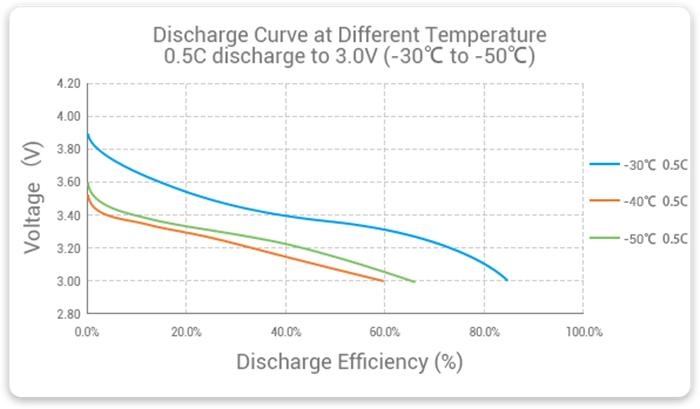
GREPOW low-temperature lipo battery discharge
Lithium batteries, on the other hand, can withstand extremely low temperatures and therefore operate remarkably, without failing, in very cold climates. This makes them very ideal for applications in outdoor appliances. You can therefore trust them to deliver the battery power that you need for experiential use of gadgets that you need to be powered without the restrictions caused by changes in the climate. Lithium batteries can therefore be used as high-performing alternatives to standard alkaline batteries in circumstances where alkaline batteries are preferred but their performance is negatively affected by extremely cold weather.
Why you should Espouse Lithium Battery Solutions
Gadgets like wearable devices, UAV, power tools, power sports machinery, IoT and smart home devices, energy storage systems, and others that may find the need to be used in very cold environments will benefit from the resilience of lithium batteries power in very cold climatic conditions. Grepow has greatly customized and semi-customized battery solutions that you could benefit from. They will design and manufacture bespoke batteries with the chemistry, structure, and protection systems that meet your requirements. Grepow's cold weather battery solutions have made the company a leading drone battery supplier. Through this portfolio, they have provided battery solutions that are tailored for specific projects.
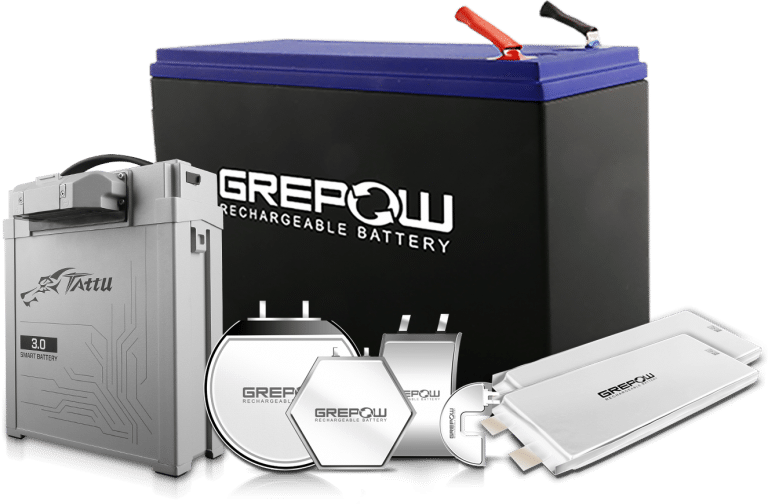
Let Grepow be your Trusted Partner in Lithium Battery Solutions
Grepow's LiPo and LiFePO4 batteries perform remarkably in cold weather. Their LiFePO4 batteries ensure tremendous low-temperature discharge performance thanks to the addition of functional material into the battery's electrolyte and the innovative device engineering that the company has mastered through its many years of research and development in the field of rechargeable batteries. The LiPo batteries can be made to operate in environments of temperatures as low as (negative) 50℃ and as high as 50℃. While in low-temperature environments, these batteries can achieve a significant reduction in their internal resistance, which means that their rate of discharge tends to be below. This is great because it means that the battery stays longer before it needs to be recharged. If you compare Grepow's LiPo batteries and the traditional Lithium Polymer batteries, you will see that Grepow’s have broken through the discharge temperature glass ceiling of (negative) 20℃ to 60℃. The batteries are able to with an efficiency of over 60% at 0.2C at (negative) 40℃ and a discharge of over 80% efficiency at 0.2C at (negative) 30℃. This remarkable performance can be maintained above 85% even after 300 discharge-recharge cycles.
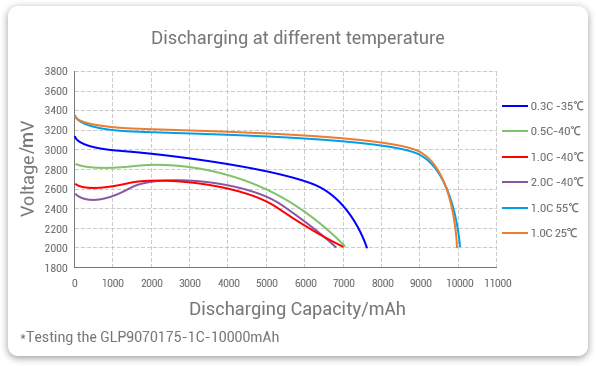
Grepow lithium battery solutions for use in the following Areas
Grepow's LiPo and LiFePO4 batteries will be very helpful to you if you want battery energy for use in special equipment, deep-sea diving, public security, medical electronics, the aerospace industry, scientific investigations into polar regions, and electrical-power telecommunications, among many others. Whatever OEM or ODM, leave it to Grepow.
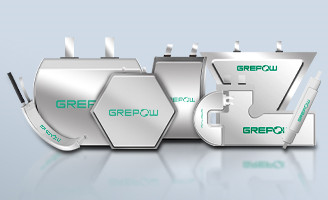
Grepow has over 500 specially shaped batteries that will spoil you for choice because of their unique shapes, sizes, and capacities. Depending on your battery needs, every shape of the battery will be provided to you. The company is unparalleled in the fabrication of rectangular batteries, triangular batteries, round-shaped batteries, curved batteries, ultra-thin batteries, hexagonal batteries, ultra-thin batteries, c-shaped batteries, D-shaped batteries, polygonally-shaped batteries, and you can contact them for more special shaped battery specifications!
Conclusion
In the lithium vs. alkaline battery showdown, the choice depends on the specific needs of the devices they power. Lithium batteries shine in high-performance and high-drain applications, offering a longer lifespan and lightweight design. If you need battery power for your GPS trackers, wearable devices, medical equipment, Internet of things devices, smart homes, cordless power tools, energy storage systems, UAV, remote-controlled devices, and any other consumer electronics, please feel free to contact us at info@gerpow.com.
Related Articles
-

Powering Aerial Artistry: Grepow Battery Solutions Behind Drone Light Shows
2025-10-27 -
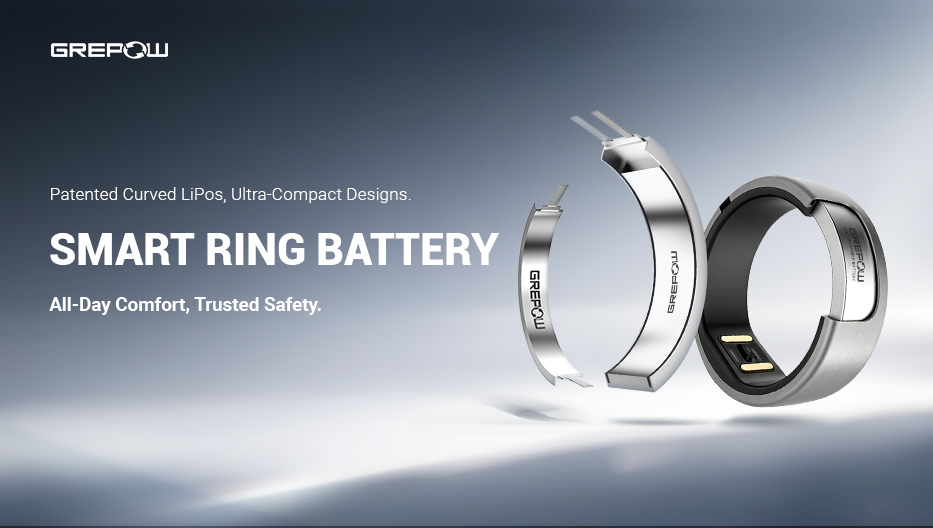
Powering the Future of Wearables: How Grepow's Patented Curved Battery is Revolutionizing the Smart Ring
2025-10-16 -

Grepow Battery Announces Manufacturing Agreement with Powerbanc Group
2025-09-30




